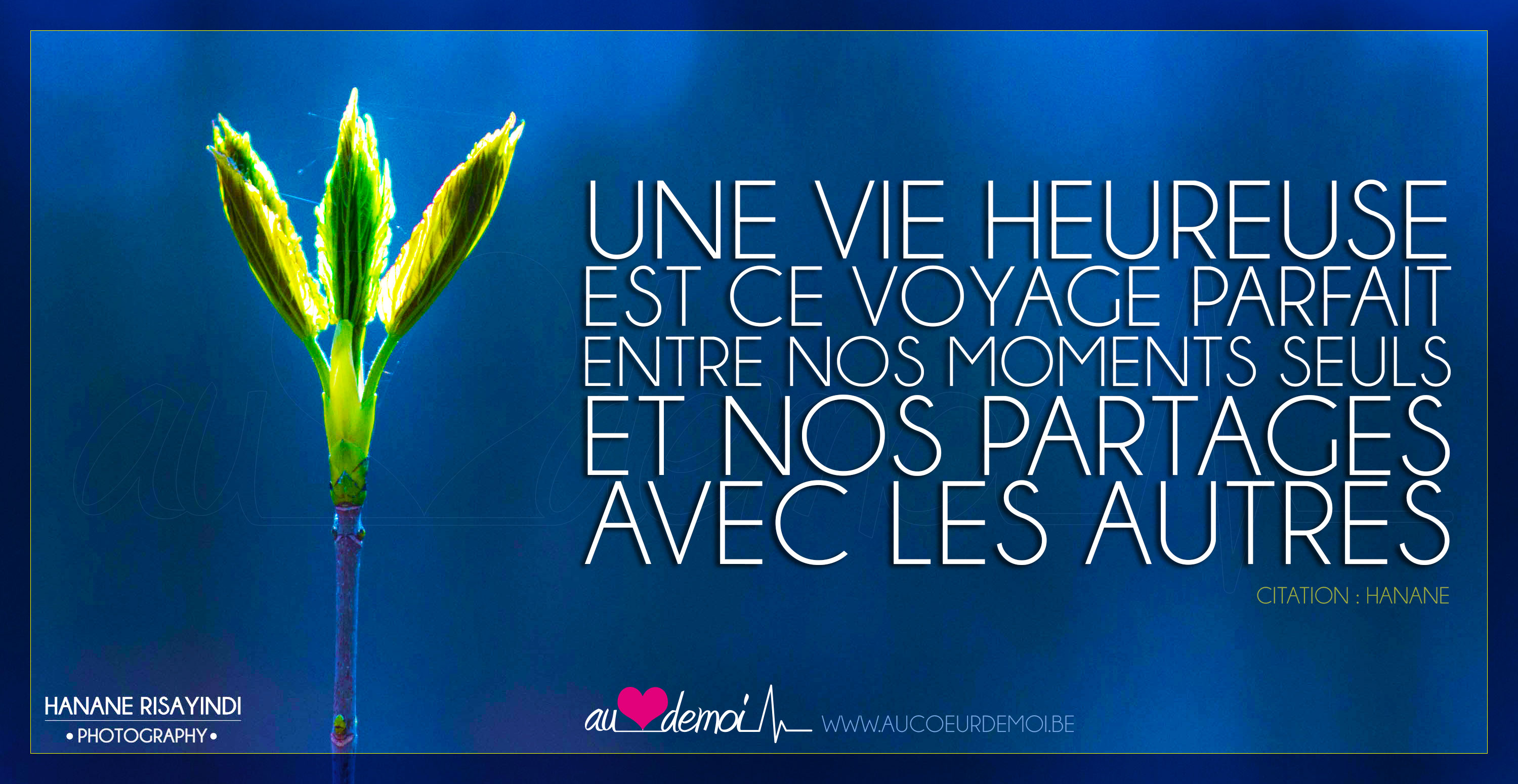Post By RelatedRelated Post
Hanane: “Ever since childhood, I have cultivated empathy”
Hanane is a Reiki practitioner and a Bach Flowers consultant. After completing her studies in psychology, she continued to develop and expand her skills, with the sole purpose of understanding the hardships and difficulties of others. In a world where individualism is rampant, Hanane espouses compassion. Find out who she is, her areas of specialization and, in particular, how she can guide you!
– You first studied psychology and then followed a path towards spirituality and well-being. What motivated you to do this and what impact does spirituality have on your life?
– Psychology, spirituality, and well-being form the foundation for my approach to helping others. Spirituality allowed me to understand that we are all One: each human being is linked to one another and every action a person takes is a part of the universe, creating an interconnected web of information. It is important to me that my actions are as close as possible to being “perfect,” so that the impact they have on those around me is harmonious.
Spirituality has always been a part of me. From an early age, I was able to feel the emotions and thoughts of people around me. I was hypersensitive, but I eventually learned to control myself because the way I responded emotionally to the joys and sorrows of others could be disconcerting to them. I have always had this innate empathy and the yearning to meet the needs of others. Over time, I learned to adapt my response and behaviour.
Growing up, I found answers to my questions in spirituality and the study of human psychological functioning. Through psychology, I also learned to be present in a fair way—to be attentive to what was said and not just what I felt. Distinguishing the two is important because although my feelings were often right, it was equally important for the other person to verbalize their feelings and to become aware of them.
Spirituality has influenced me in that I tune into my intuition to bring practical assistance to people who come to me.
– You are a Bach flower consultant and Reiki practitioner. Can you tell us briefly about both of these?
– Bach Flowers therapy focuses on providing non-judgemental listening and nurturing: when a person comes in with an issue, we take care of clearing away all of the emotions associated with that issue and any related events. Among the 38 Bach Flowers, we choose those best suited to that particular emotion. Each flower corresponds to a specific emotion that fits into one of these themes: fear, uncertainty, lack of interest for the present, loneliness, hypersensitivity, despondency, despair, and excessive worry about the welfare of others.
By taking drops from the custom-made mix of flowers, the person is able to better manage their emotions by becoming more aware of them and finding peace to deal with the current situation or similar situations in the future. This therapy also mitigates associated physical symptoms, such as nervous tics, eczema, and dependencies.
– Reiki differs in that it does not require any verbal description of the problem. The person lies down, fully clothed, on a massage table, relaxes, and simply experiences the session. The Reiki practitioner places her hands in strategic places on the person’s body and allows the energy to act on the zone, without any further movement by the practitioner. This approach generates total well-being in the person, positively affecting the individual’s psychological, physical, and emotional selves.
Sometimes, the client wishes to talk after the session and this is encouraged. Additionally, the practitioner may also desire to communicate her feelings stemming from the session; this can help advance the client’s personal development.
With both Bach Flowers therapy and Reiki, we provide a therapeutic approach, designed to allow the patient to advance on his or her path of personal development. We take into consideration the patient’s personal history and maintain safe parameters of understanding, serenity, and non-judgment.
– I read on your website that Bach Flowers can help treat addictions. Is it possible to cure alcoholism?
– Bach Flowers work at the deepest level. We consider the pursuit of Bach Flower therapy similar to how one would peel an onion—layer by layer. When a person openly discusses his issue, he becomes aware of the underlying emotions within him. While taking care of that particular raised issue, other emotions and issues may surface, which are then treated one at time, and so on.
Generally, addictive behaviour hides a deeper problem. It may be an issue related to a childhood or adolescent trauma, or sometimes it may be a more recent suffering. While working on present difficulties, we treat both the current feelings and those experienced in the past.
For example, let’s take a hypothetical case of a man who has experienced a painful break up and who seeks comfort in drug abuse. He needs to smoke a joint every night before he can go to sleep. His addiction is linked to his sleep. A practitioner would first work on the emotions that arise precisely when he feels that he needs that joint. After an in-depth meeting, we will determine what is happening exactly at that moment in time. It could be that he needs the joint because anxiety overtakes him every time he tries to sleep. Bach Flowers will allow him to alleviate his fears. As time goes on, within the parameters of the therapy, we may discover other aspects of his dependence. It could be that he experienced violent arguments with his ex-wife, which primarily took place just before going to bed. While this is only an example, the answer is “yes,” the therapeutic approach can be adapted to alcoholism.
– Are there any specific barriers to stop drinking?
– That’s a very good question. While the answer might initially appear to be “no,” because abstinence is merely a matter of determination,” in practice, it’s not that straightforward. For every case, we need to look into what is motivating the addictive behaviour. It must be determined whether, in the psychological make-up of the person, addictive behaviour is playing a balancing role.
If you remove alcohol from a woman who seeks refuge in it because she feels that she has the weight of the world on her shoulders, you must simultaneously offer her alternative positive resources and monitor her advancement; otherwise, she may develop an alternative self-destructive behaviour.
To help the alcoholic rid herself of addiction, we must go back to the source of the problem, find the triggers of her daily life—those small events that slide her back into panic mode and push her to drink—and slowly teach her to identify those moments that push her towards alcohol.
It is only by approaching it gradually and offering a secure framework in which to work that the person can get rid of alcohol dependency and no longer identify alcohol as a solution to the pain.
Taking Bach Flowers will help the person to become aware of her emotions, identify them when they arise, and enable her to better manage them. It will also help her to move from one emotional state to another and to better understand psychological and physical oneness.
– Hanane, thank you for the valuable advice. Would you like to address a particular message to our readers?
– I would like to say that regardless of the problem that needs to be addressed, we have the opportunity to evolve and live peacefully if we decide to deal with our issues right now.
Here are two personal quotes that illustrate the work I do:
“Let’s take care of the shadows of the past,
To free ourselves and live fully now
And enjoy an ever brighter future… ”
“I am a tree,
My leaves move during the storm,
But my branches remain strong.»
Hanane consults in Brussels, Belgium. Her tailor-made services are also available via video-conference for those who cannot travel.
Website: http://www.aucoeurdemoi.be
Facebook page with daily tips: https://www.facebook.com/reiki.eft.fleurs.de.bach








Thank you for stopping by and also for your kind words. I’m pleased that you like the blog and this post. Best wishes.